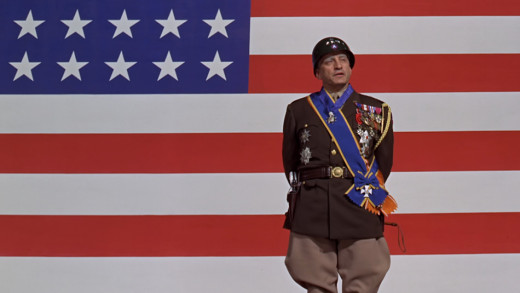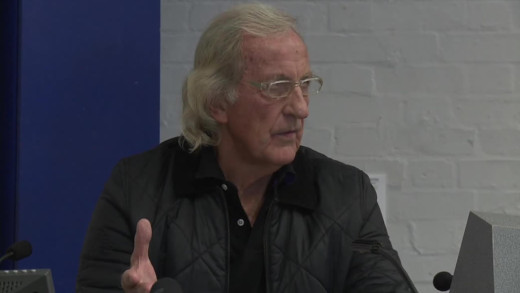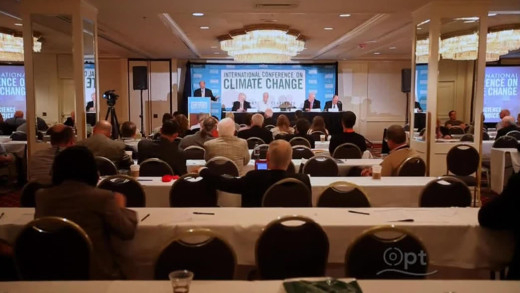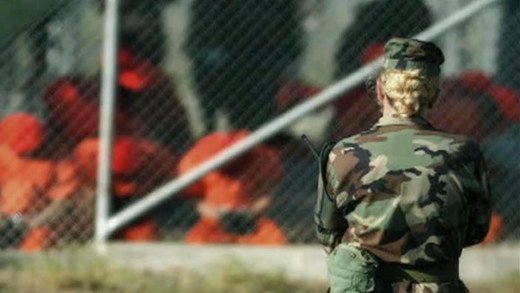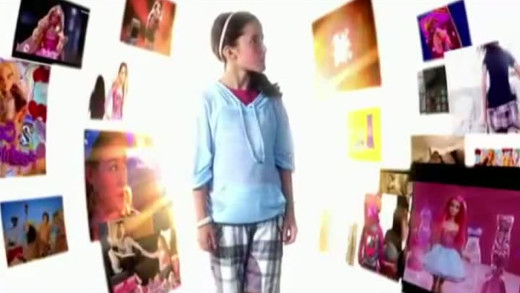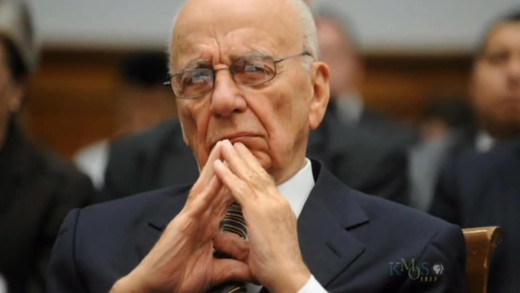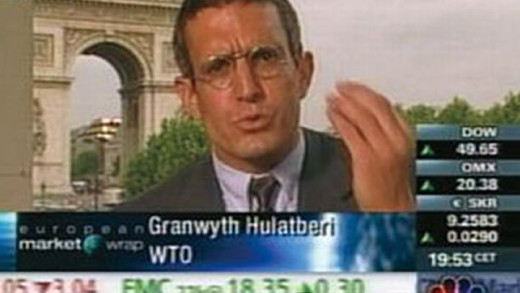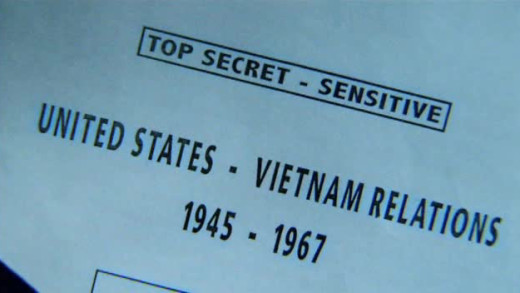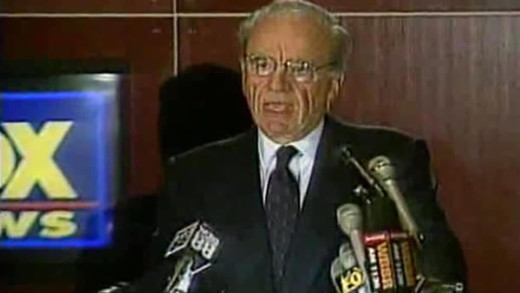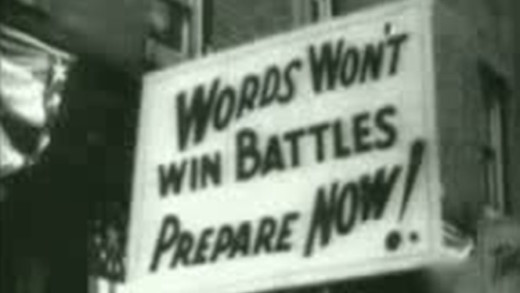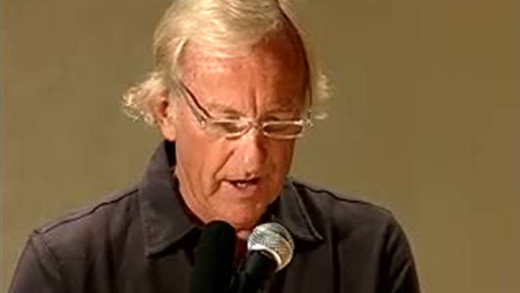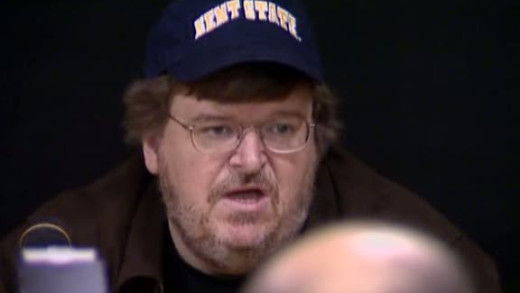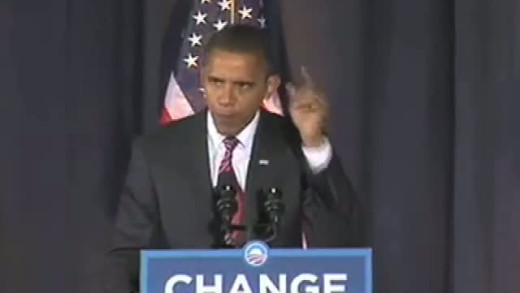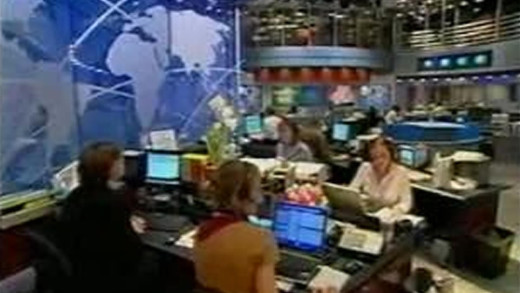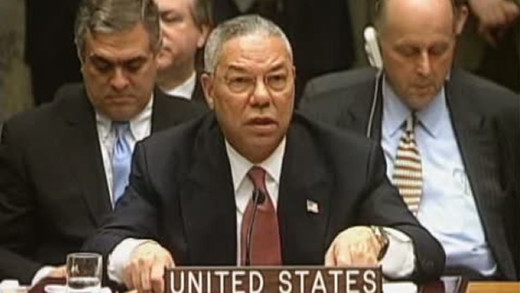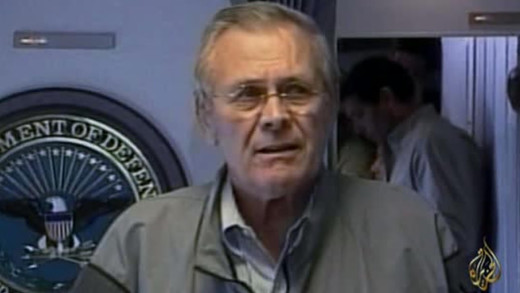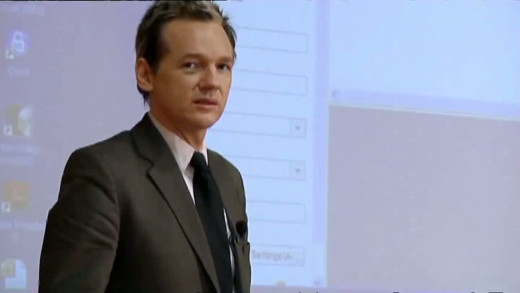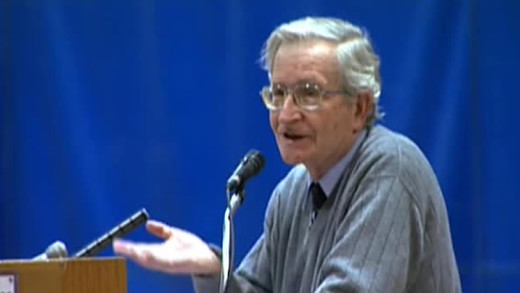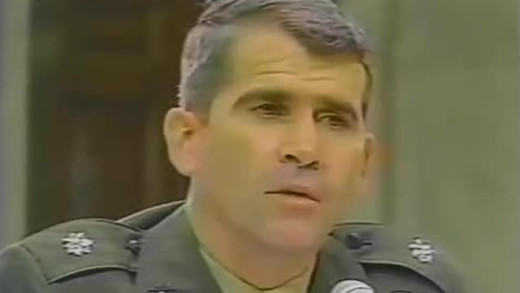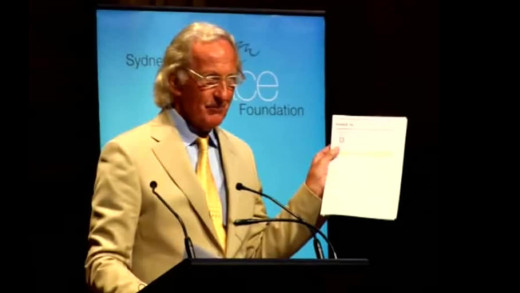The Pentagon has a long tradition of cooperation with Hollywood. Movie studios can save millions of dollars and achieve spectacular success by securing use of military stock footage, military equipment, weapons and manpower. But the catch is that Hollywood must alter scripts, whitewash history, censor and present their films to display war and the military in a favourable way. As a consequence, mainstream commercial films become the best and most powerful, widespread propaganda...
Tough Guise
Tough Guise -- Violence, Media and the Crisis in Masculinity examines the relationship between the images pervasive in popular culture, and the construction of so-called masculine identities from them.
John Pilger talks about the various mainstream media commonalities of today--censorship by omission, information management, Public Relations and the 'massaging of information', as well as the clever distractions such as the election of Obama as a war monger in the land of slavery, alongside figures such as Hillary Clinton and Julia Gillard as a false win for so-called 'feminist ideals.' Amongst the ongoing wars played by the United States, Britain and Australia, Media And War -- Challenging The Consensus is a renewed call to unravel complex propaganda and cut through distractions.
Climate Of Doubt is an investigation into the growing forces manipulating public opinion on the scientific consensus of impacts to global climate by industrial civilisation. A massive disinformation campaign is growing from the fronts of government and corporate interests to undermine scientific processes and reshape public perceptions. Climate Of Doubt ventures inside these organisations to demonstrate the strong influence of the global politick on maintaining established denial, and ignoring culpability on the issue of anthropogenic climate change.
The discrepancies between the "War on Terror" and the facts on the ground in Afghanistan and Iraq are many. In 2001, as the bombs began to drop, George W. Bush promised Afghanistan, "the generosity of America and its allies." Now, the familiar old warlords are retaining their power, religious fundamentalism is expanding its grip and military 'skirmishes' continue routinely. In "liberated" Afghanistan, America has its military base and pipeline access, while the people have the warlords who are, as one woman says in the film, "in many ways worse than the Taliban."
From tiny tots strutting bikini-clad bodies in beauty pageants to companies marketing itty-bitty thongs and padded bras directly to 9-year olds; images of ever-younger sexualised girls pervasively saturate the media landscape. Add to that: ever-younger boys with 24-7 access to hard-core internet porn and the situation permeates every aspect of their lives--from skate parks to the school bus. By the time they’re eighteen, 80 percent of boys are watching porn online. Then add to that smart phones and social networking websites, and kids can not only consume X-rated images, but can now also produce them. Sexting has become a Grade 7 right of passage. Sext Up Kids exposes how growing up in a hyper-sexualized culture hurts everyone. Teens and pre-teens show and tell what they are doing and why they are doing it. Psychologists and social researchers reveal startling new evidence, tracking how the pressure to be sexy is changing teen and sexual behaviour in alarming ways. Parents and educators struggle to help kids navigate puberty in a world where the line between pop culture and porn culture is increasingly blurred. For every parent who thinks, “that’s not my son or daughter,” Sext Up Kids is your wake up call.
By providing a striking comparison of U.S. and international media coverage of the crisis in the Middle East, Peace, Propaganda and The Promised Land zeros in on how structural distortions in U.S. media coverage have reinforced false perceptions of the Israeli-Palestinian conflict and how, through the use of language, framing and the context of the Israeli occupation of the West Bank and Gaza remains hidden in the news media...
Over half a century, Rupert Murdoch's rapacious business audacity has built one of the world's most powerful and ubiquitous media empires. But with revelations of bribery, blackmail, collusion with police and government, wiretapping and other invasions on privacy, the empire seems to be showing cracks. The scandal has prompted criminal investigations on both sides of the Atlantic and also broken open the insular world of the Murdoch family, its news executives, and the vast political elite who court their favour. Murdoch's Scandal tells the story of the battle over the future of News Corporation and the challenging of the extensive media empire...
Most people who know that the mainstream media manipulates stories, manufactures illusions, and exploits fears can realise that the reason is more than just bias or sloppy reporting. Behind The Big News shows the ideological agenda that originates outside the media that defines today's headlines, using examines of some of the biggest news stories in recent decades to illustrate how this agenda is rigorously promoted and protected.
The Yes Men are a culture-jamming activist-duo from the United States that are known for their impersonations of entities that they dislike as a form of protest. Using spoofed personas, they spread awareness of problematic social issues through the mainstream media. The two have also created and maintained fake websites, which have even led to numerous interviews, conferences, and TV invitations for their spoofed personas to espouse the truth about just how corporations and governmental organisations often act in dehumanising ways toward the unwitting public. In this film, we see how the two Yes Men take on the World Trade Organisation and confront the brutal realities of globalisation using satire and tactical media to get their message across, culture-jamming the corporate interest.
In 1971, Daniel Ellsberg shook the United States to its foundations when he leaked top-secret Pentagon documents to the New York Times that showed how five Presidents consistently lied about the Vietnam War. Consequently, National Security Advisor Henry Kissinger called Ellsberg "the most dangerous man in America," who "had to be stopped at all costs." But Ellsberg wasn't stopped. Facing 115 years in prison on espionage and conspiracy charges, he fought back...
The global growth of Rupert Murdoch's media enterprise is cause for concern. The concentration of media ownership on a global scale in the hands of one man infringes on the freedom of the press by definition at the very least. But the real life example here is Fox News and it's own claim of being "Fair and Balanced" -- one only has to look at the coverage of the invasion of Iraq for example, or "commentators" such as Bill O'Reilly or Sean Hannity and the interactions they have with their "guests"; the vast political connections between Fox News, the Whitehouse and the Pentagon propaganda unit; the suppressed news stories, the censorship, the manipulation and control over the "news" by Murdoch and the president Roger Ailes themselves, not to mention the control over reporters, with former journalists alleging that Fox News asked them to lie and when they refused they were fired. Even lawsuits entailed from this with the court ruling that it is not against the law to lie on a news program...
While advertising is clearly a visible component of the corporate system, perhaps even more important and pervasive is the often-invisible partner—the public relations industry. Toxic Sludge Is Good For You illuminates this hidden sphere of the corporatocracy, examining the way in which the management of public discourse has become central to how society has been usurped and is controlled by political and economic elites. The film tracks the development of the PR industry from its early efforts to win popular support for World War I, to the role of crisis management in controlling damage to the corporate image, while analysing the tools PR people use to manipulate public perceptions.
Australian journalist, author and film maker John Pilger speaks about global media consolidation, war by journalism, the US military and its quest for domination/hegemony in the post 9-11 era and the false history that is presented in the guise of 'objective' journalism...
To the movie-going public, Michael Moore is known as a corporate big-wig buster and perhaps the mainstream media's most vocal opponent of the Republican Party. But what happens when the hunter becomes the hunted? In this film, Canadian creators Debbie Melnyk and Rick Caine find out first hand. While originally intending to create a biography of Moore stemming from their own great admiration for his work, the creators find that they have become disenchanted with many of Michael Moore's 'tactics' and the story takes an interesting twist...
Lifting The Veil explores the historical role of political parties in the United States as the graveyard of social movements, the massive influence of corporate financing in elections, the absurd disparities of wealth, the continuity and escalation of neoconservative policies with the Obama administration, the insufficiency of mere voting as a path to reform, and differing conceptions of democracy itself. Lifting The Veil exposes the vast hypocrisy of the United States government, with a sense of urgency to bring about real systemic social and political change...
Spin
Using the 1992 presidential election as his springboard, film-maker Brian Springer captures the behind-the-scenes manoeuvrings of politicians and newscasters in the early 1990s. Pat Robertson banters about "homos," Al Gore learns how to avoid abortion questions, George Bush talks to Larry King about halcyon and other drugs—all presuming they're off-air. Composed of 100% unauthorised satellite footage, Spin is a surreal expose of media-constructed reality, posing larger questions about the functioning of not only corporate media, but the political systems in which they support and how this in-turn plays to the media-constructed reality and so on.
How does one sell a war? This was a question that weighed heavy on the minds of those in the United States government long before the invasion even started. Operation Saddam: America’s Propaganda Battle takes a look at the marketing of war -– a cocktail of distortion, lies and forgeries -– as shown by former secret service agent Ray McGovern, American investigative journalist Seymour Hersh and best-selling author John MacArthur, presenting the individual stages of the propaganda battle, by which American, British and other governments sought to justify the second invasion of Iraq...
Reaching into the Orwellian memory hole, War Made Easy exposes the some 50-year pattern of government deception and media spin that has dragged the United States into one war after another from Vietnam to Iraq. Using archival footage of official distortion and exaggeration from LBJ to George Bush, this film reveals how the American news media have uncritically disseminated the pro-war messages of successive governments -- paying special attention to the parallels between the Vietnam war and the war in Iraq...
US Foreign Policy -- The War Against The Third World is a video compilation series of 10 segments about CIA covert operations and military interventions since World War II.
Militainment Inc. examines how news coverage of war in the United States has come to resemble Hollywood film, video games, and reality television in its portrayal of war as entertainment. Using a range of media examples--from news anchors' idolatry of military machinery to the impact of government propaganda on war reporting--Militainment Inc. asks: How has war taken its place as a spectacle of entertainment? And how does presenting war as entertainment affect the ability of the population to evaluate the real human costs of this culture's military-industrial-complex?
Control Room presents a rare window into the US invasion of Iraq from the perspective of Al Jazeera, the Arab world's most popular news outlet. Widely criticized and condemned by military figureheads, government officials and the mainstream media in the west for reporting with a "pro-Iraqi bias", airing civilian causalities, as well as showing footage of American POWs, Control Room reveals the situation in Iraq that the US government does not want you to see...
When Julian Assange arrived in Sweden in August 2010 he was greeted like a hero. But within weeks there was a warrant out for his arrest and he was being investigated on allegations of rape and sexual misconduct. Today, Assange is cornered in the Ecuadorean Embassy in London, arguing he won't receive justice if he's taken to Sweden and that authorities in the United States are building a case for his extradition. In Sex Lies And Julian Assange, Andrew Fowler retraces what happened in those crucial weeks while Julian Assange was in Sweden. What was the nature of his relationship with the two women? And what happened with the police and prosecutors?
Rebel Without A Pause follows renowned linguist and activist, Noam Chomsky through discussions and talks on various world events such as the invasion of Iraq, the September 11th attacks and the War on Terror. Chomsky also weaves in accounts of media manipulation, social control, and discusses the workings of the politics of fear. The film combines footage from large forums to small interactive discussions on these topics, as well as reflections from others...
Enemy Image
Enemy Image overviews the history of the portrayal of war in television news from the perspective of the United States. The film starts with the coverage of Vietnam where reports happened with little supervision, control or interference. Following this, The Pentagon takes action to control access by journalists to battle areas in subsequent invasions--such as the Invasion of Grenada, where journalists were excluded completely--to the first Gulf War, where 'news packages' were provided directly from the military; to the embedded churnalism of the invasion of Iraq. Shown is the progressive tightening of control by the US military on the contact journalists have with soldiers and civilians in the war zone, in order that "never again will television raise the moral and political questions that face a people during war."
Cover Up -- Behind The Iran-Contra Affair is a thorough investigation into information suppressed during the Iran-Contra hearings in 1987 where it was found that senior officials in the United States government secretly facilitated the sale of arms to Iran. The film reveals a shadow government of former CIA operatives, drug smugglers, top US military personnel and others, revealing evidence of the history of CIA involvement in drug running from the Vietnam heroin era to the Central American cocaine epidemic -- raising serious questions about the so-called "war on drugs" and other government movements since the 1980s...
John Pilger talks at a public forum in Sydney about the recent revelations of WikiLeaks and the importance of leaked information in exposing the lies and machinations of Public Relations in mainstream media and political rhetoric. Pilger demonstrates the parallels with the plight of Julian Assange and the treatment of David Hicks through the United States legal system, and also explains using recent leaked documents why state power sees investigative journalists and others as a major threat to the established order...
The Daily Mirror used to be a peoples' paper that respected its readers and earned trust and affection. But that changed out of all recognition when the British public were told that the new information technology, heralded by The Sun's move to Wapping, would bring a greater variety of newspapers and a more diverse media. Instead, what happened was rapid moves toward contracted press controlled by ever fewer proprietors. John Pilger describes the downfall of his old paper and the all-pervasive influence of Rupert Murdoch...
